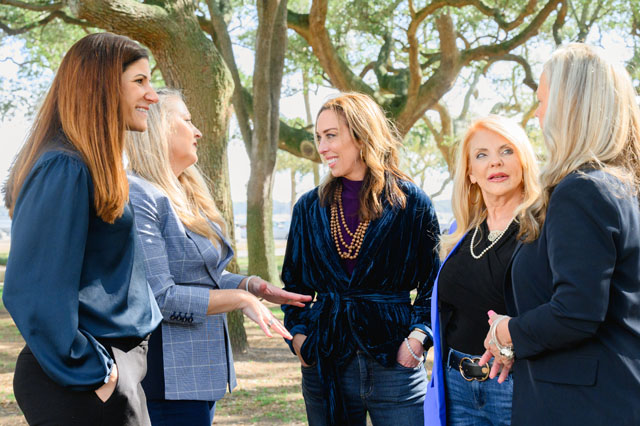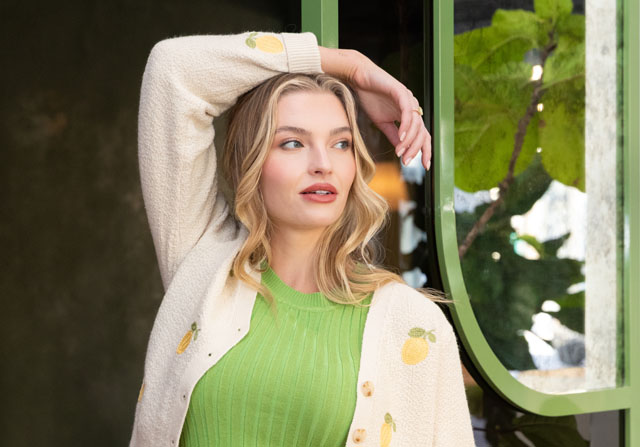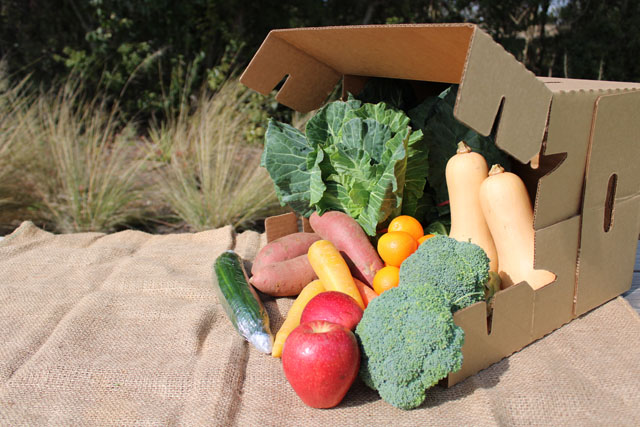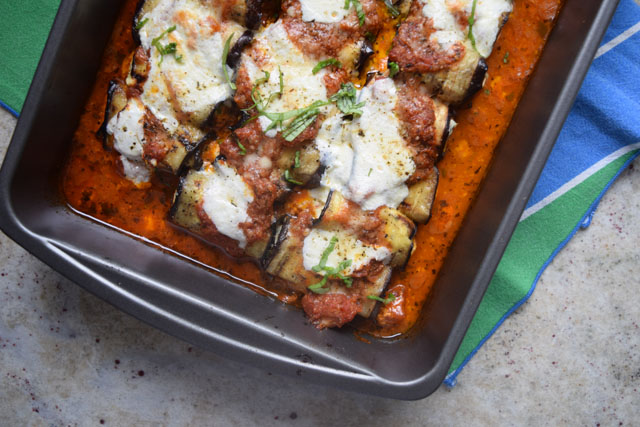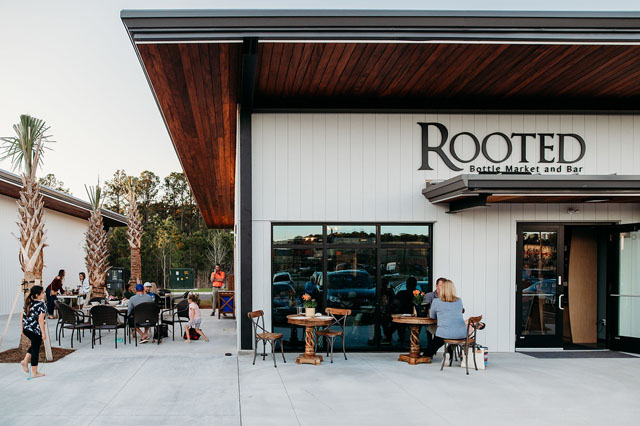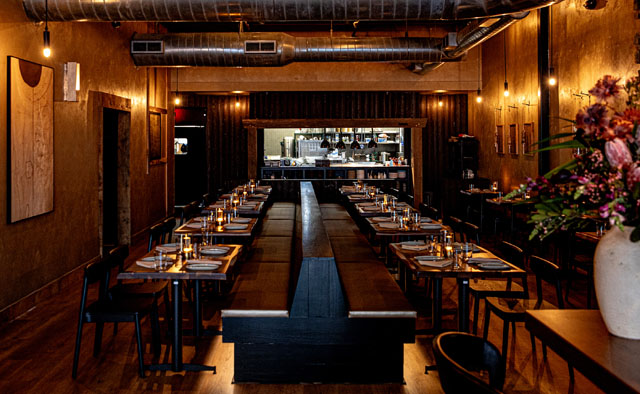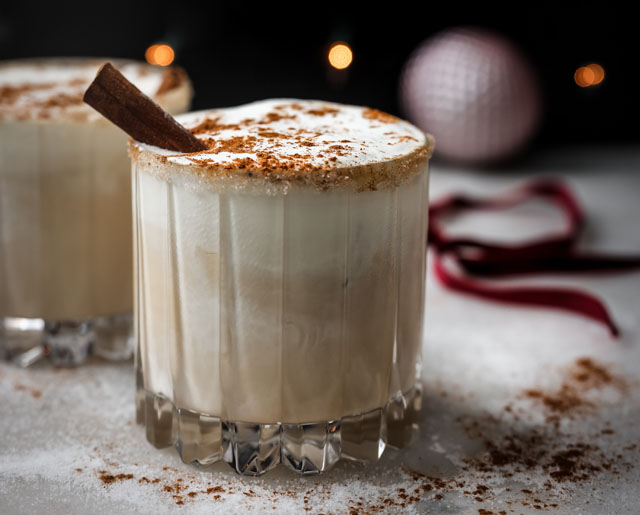Fresh & Local
05 Mar 2024
Lowcountry produce farms & their sustainable bounty
The Lowcountry is rich in locally-grown produce and local farmers work every season to bring bright and crisp fruit, vegetables and herbs to local restaurant menus, farmer’s markets and in community supported agriculture. Below are some produce farmers to know and how to get your hands on their beautiful bounty.
By Jenny Peterson
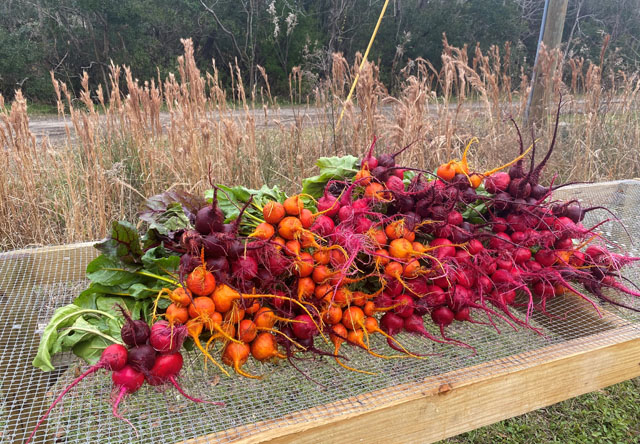
Johns Island Grower Carries on Tradition of Farming in the Lowcountry
Photos by Lydia Hadley
Like life, farming is a continuous, learning process. And like life, success can be found by learning from those who came before you.
John Warren, owner of Spade & Clover Gardens, is growing vibrantly-hued carrots, beets, cabbages, lettuces, spinach, ginger, turmeric and more on his 12-acre John’s Island farm that he runs with his partner Anna.
Warren, an artist in his previous career, started Spade & Clover Gardens 11 years ago. He was a member of Dirt Works Incubator Farm on John’s Island for the first three years, learning the trade and graciously given permission to farm his own plots on other farmers’ tracts of land.
“I learned from a couple of farmers, (especially) Sidi Limehouse (at Rosebank Farms) on Johns Island. I've found inspiration from him,” Warren said.
Warren started out selling his harvest at the Charleston Farmer’s Market at Marion Square.
“And, but that actually got me in touch with a lot of the restaurants uh that used to, the chef used to frequent market a lot more.
Warren still farms those plots of land where he started out and continues to support and be supported by the farming community.
Today, Clover & Farms produce can be found delivered to local restaurants, in weekly community-support-agriculture boxes that are being delivered to more than 50 customers (with 7-9 items in each bag), The Sunday Brunch Farmer’s Market at the Pour House in James Island and at the Lowcountry Street Grocery bus, bringing John’s Island produce that was harvested as early as the day before to everyone’s tables.
Lessons from the Soil
For Warren, produce farming is a humbling profession—some years crops don’t flourish as expected. Other years, new crops are added experimentally to see how they fare in the Lowcountry soil and thrive, with the staple crops serving as the farm’s bread and butter.
“We recently got (heirloom) Charleston Wakefield cabbage in the last couple of years. That's a really nice pointy cabbage,” Warren said. There’s a fava bean crop that's he’s testing out. He farms outdoors and in a greenhouse that serves as a propagation house.
“We’re growing Charleston hot cayenne peppers and we're trying to grow a few papaya plants, bananas and plantains to give them a trial (run),” Warren said. “We're lucky here in Charleston because the demand for vegetables is so high. You can play it safe in a lot of ways and then take a couple of risks.”
Warren relies on his knowledge and experience—and that of his predecessors—to manage the risk.
“The key to success is not growing too fast and not being overly ambitious. It took a while to get good at it and lots of trial and error. Lots of mistakes, a lot of luck and just lots of perseverance. If there's a crop failure, it's like, ‘OK, it is what it is.’ If there's success, you say, ‘Well that’s great.’ And you wait for next season,” Warren said. “It’s very much a flow and I think if you become kind of at home with that (flow), it makes it easy to stay with it.”
To learn more, visit www.spadeandclovergardens.com
Produce Farms to Know—and One ‘Agrihood’
For an expansive list with a map of local farms, visit www.lowcountrylocalfirst.org/member-directory/farms
Spade & Clover Gardens – A Johns Island farm specializing in seasonal produce owned by John Warren. www.spadeandclovergardens.com
Kiawah River - Kiawah River’s agricultural neighborhood engages its residents with a working farm right outside their doorsteps. Neighbors can enjoy farm animals and the rows of farmland filled with seasonal fresh produce. www.kiawahriver.com
URB Farm - Herbs, flowers and edible greens sold at local restaurants, wholesale and retail owned by Amy and Dan Urbanik out of John’s Island. www.theurbfarm.com
Fire Ant Farm - A garden-style farm on John’s Island selling at the Sea Island Farmer’s Market on Saturdays year-round with online ordering options. www.fireantfarm.org
Rosebank Farms - A working farm since 1988 on John’s Island that has been providing fresh, high-quality produce to locals and visitors season after season, farmed by Sidi Limehouse. www.rosebankfarms.com
Lowland Farms - A 14-acre sustainable family farm on Johns Island specializing in heirloom vegetables, flowers and eggs farmed by Kenneth “Skinny” Melton. www.lowlandfarms.com
Joseph Fields Farm - A 50-acre, certified organic fruit and vegetable farm on Johns Island stewarded by Joseph Fields, a third-generation Gullah-Geechee farmer. Find produce at weekly The Mt. Pleasant Farmer’s Market.
Kindlewood Farms – Sustainable produce hand-harvested in Walterboro. Find produce at the Sea Island Farmer’s Market and Mt. Pleasant Farmers Market. www.kindlewoodfarms.com
Freeman Produce – A Johns Island farm harvesting seasonal vegetables including strawberries, okra, butter beans, potatoes and more. Find produce at Mt. Pleasant Farmers Market.
More Than Honey
The buzz on pollinators
Bees are more than just responsible for the delicious honey we enjoy, they are also important pollinators that help certain local crops stay robust each year.
The bees handled by Mark Connelly, owner of Edisto Gold Honey, are hardworking pollinators, working in Lowcountry blueberry and watermelon farms to help bring pollen from one flower to the next. Connelly transports the hives by trailer to local farms that need a boost of bee power. The resulting raw wildflower honey is what makes up Edisto Gold Honey products—which also includes honey soap, bee pollen and other items sold at local farmer’s markets, online and specialty stores throughout Charleston.
“If you rely on just natural bees, you might get half of a crop, or a far less crop than you would if you bring in managed beehives with thousands of pollinators spreading pollen from one flower to another,” Connelly said. “If those flowers don't get the pollen they need, they will just drop to the ground instead of producing fruit.”
Connelly has kept beehives since he was a teenager growing up in the foothills of North Carolina. He started pollinating apple orchards and then sold that honey in nearby general stores. Now living in St. George, Connelly began pollinating farms along the Edisto River, which inspired the name Edisto Gold Honey.
“If a farmer needs me to pollinate a field, I'll put a trailer full of 20 hives in that field, leave them there for about a month and then when the flowers finish blooming, I'll go and take them out and move them somewhere else,” Connelly said. Due to the various pollination sources, “every nectar has a slightly different flavor and color profile,” he said.
Edisto Gold Honey bees have helped pollinate blueberry crops at the Black Pearl Farms in Branchville, SC, at farms on Johns Island and a newer partnership at Kiawah River, a “farm-to-table” agri-neighborhood.
Connelly said it’s a symbiotic win-win relationship between the bees and crops and honey producers and farmers: Bees are looking for food for themselves as well as food to feed their larva while providing important pollination during the process.
“They're just really fascinating creatures,” Connelly said.
Learn more about Edisto Gold Honey at www.edistogoldhoney.com.
Mount Pleasant Farmers Market hosts Dozens of Farmers & Food Vendors Weekly
Pick up dinner and meal plan for the week with fresh, local, field-to-table produce at the Mount Pleasant Farmers Market, which has long-focused solely on vendors who are local farmers, producers or food makers. The market kicks off its 2024 season on Tuesday, April 2 from 3:30 – 7 p.m. p.m. and runs weekly through September.
“We are a traditional farmer’s market with farmers and food products only with value-added food vendors, like spices and sauces,” said Tracy Richter, events coordinator and market manager for the Town of Mount Pleasant. “We have about 40 vendors and about half are farmers.”
The market, now in its 27th year, is held on Tuesday evenings because local farmers had originally suggested that day as a way to not conflict with the previously established weekend farmers markets they attend, said Richter.
“Our primary goal is in-season local fresh produce,” Richter said.
Every Tuesday, attendees can hear live music and stock up on farm goods, from seasonal fresh fruit and vegetables, cheese, mushrooms, preserves to fresh-cut flowers and herbs, fresh eggs and more. Richter notes there is always a line for strawberries from vendor Shuler Peach Company out of Holly Hill.
“The Charleston area has such great farmers and producers, and they are all happy to talk with people about their products or help come up with ideas on how to use them,” Richter said.
Some vendors come only when their products are in season, like the much-anticipated summer crop butter beans provided by J Mac Produce—A.K.A. the “butter bean lady” —who travels from Manning, SC.
There is also prepared food at the market, like fried shrimp and quesadillas, with plenty of picnic tables and grassy areas to enjoy a meal and live music.
Clemson Extension Master Gardeners are also on hand to test soil samples from your yard to help you kickstart your own garden. The market is located at 645 Coleman Boulevard and offers free parking. Find more into at www.experiencemountpleasant.com/play and follow along on social media at www.facebook.com/MountPleasantFarmersMarket.

